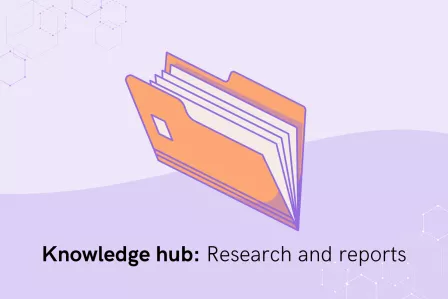According to the report, in 2023, 25.9% of people aged 16 to 74 have digital skills at basic level and 30.0% above basic, giving a proportion of 56.0% for all those with skills at basic level or above, 0.7 percentage points (pp) more than in 2021.
In the same year, 85.8% of the resident population aged 16-74 used the internet in the 3 months prior to the interview (1.3 pp more than in the previous year). Virtually all young people aged 16-24 and all students use the internet, and the usage rate is over 98% for those (16-74) who have completed upper secondary or tertiary education.
Communication and access to information remain the main activities of internet users: 92.2% exchanged instant messages (via WhatsApp, Messenger, etc.), 87.5% sent or received emails, 85.3% searched for information about products or services, 82.4% made phone calls or video calls, 79.7% read news and 79.3% participated in social networks. More than a third (35.5%) of internet users encountered aggressive, discriminatory or humiliating content, mainly related to nationality, ethnicity or race (27.9%).
(Source: Report).
Methodology
This short report published by Statistics Portugal (Instituto Nacional de Estatística) provides an analysis of digital skills, based on the information collected in the Survey on Information and Communication Technologies Usage by households. This aggregates data on activities in 5 specific areas – Information and data literacy, Communication and participation, Digital content creation, Security, Problem Solving – classified on a scale of skill levels ranging from "no skills" (the lowest level) to "above basic" (the highest level of this indicator). This data is collected every 2 years.
Country or region of researched population
Portugal
Citation
Statistics Portugal (INE). (2023). More than half of the population aged 16-74 has digital skills at or above basic level - 2023. https://www.ine.pt/xportal/xmain?xpid=INE&xpgid=ine_destaques&DESTAQUESdest_boui=594921919&DESTAQUESmodo=2&xlang=en
Record created:
01 March 2024
According to the report, in 2023, 25.9% of people aged 16 to 74 have digital skills at basic level and 30.0% above basic, giving a proportion of 56.0% for all those with skills at basic level or above, 0.7 percentage points (pp) more than in 2021.
In the same year, 85.8% of the resident population aged 16-74 used the internet in the 3 months prior to the interview (1.3 pp more than in the previous year). Virtually all young people aged 16-24 and all students use the internet, and the usage rate is over 98% for those (16-74) who have completed upper secondary or tertiary education.
Communication and access to information remain the main activities of internet users: 92.2% exchanged instant messages (via WhatsApp, Messenger, etc.), 87.5% sent or received emails, 85.3% searched for information about products or services, 82.4% made phone calls or video calls, 79.7% read news and 79.3% participated in social networks. More than a third (35.5%) of internet users encountered aggressive, discriminatory or humiliating content, mainly related to nationality, ethnicity or race (27.9%).
(Source: Report).
Methodology
This short report published by Statistics Portugal (Instituto Nacional de Estatística) provides an analysis of digital skills, based on the information collected in the Survey on Information and Communication Technologies Usage by households. This aggregates data on activities in 5 specific areas – Information and data literacy, Communication and participation, Digital content creation, Security, Problem Solving – classified on a scale of skill levels ranging from "no skills" (the lowest level) to "above basic" (the highest level of this indicator). This data is collected every 2 years.
Country or region of researched population
Portugal
Citation
Statistics Portugal (INE). (2023). More than half of the population aged 16-74 has digital skills at or above basic level - 2023. https://www.ine.pt/xportal/xmain?xpid=INE&xpgid=ine_destaques&DESTAQUESdest_boui=594921919&DESTAQUESmodo=2&xlang=en
Record created:
01 March 2024- Related content
- ICT (information and communications technology) young people


